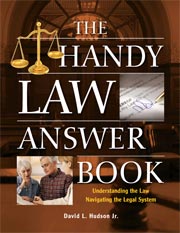Do not use your home mail box to send mail. Always use either a mail box or post office to send your outgoing mail, since a favorite way of obtaining credit card numbers and bank account numbers is by stealing outgoing mail from people's houses. Keep track of your incoming mail. If you find that you are not receiving mail, check with your post office to make sure no one has filed a change of address form for your address. Also, reduce your incoming mail by using more of the online, paperless billing offered by most of your service providers, like your credit cards, and utility bills. When you send checks for your bills, make sure the check is hidden, so that the account information on the check is concealed in the envelope.
You may contact your credit card company to place daily or monthly limits on how much can be spent on the card. Use a separate credit card for these transactions. Your credit card company may also offer alerts when your daily spending exceeds a certain limit that you decide to place on the card, and they will email you whenever that limit is reached. This way, you will know long before you receive your statement if there are any fraudulent charges.
Never click on or open up forwarded jokes, poems, and patriotic emails from friends. They are the source of viruses and may direct you to identity theft sites. Never give any credit card information to any site, without first verifying that the site itself is what it claims to be. Check to make sure you are typing the Website properly, as many fake Websites prey upon people who misspell the Website, and make a fake site that looks EXACTLY like the site that you wish to go to. These sites move around frequently, and are difficult to trace, so be careful when you enter a Website name. Never enter a social security number in a site, and never use a social security number or a variant as a password, for any reason. Never open up any spam or even an email, if you do not personally know the sender, no matter how enticing the offer. Delete these emails immediately.
From The
Handy Personal Finance Answer Book by Paul A. Tucci, (c) 2012 Visible Ink Press(R)
Answers to more than 1,000 answers to questions on personal finance, its history, and managing one's financial life.
Dig deeper with these related titles:
 |
The Handy Personal Finance Answer Book
by Paul A Tucci
An up-to-date financial reference book for everyone . . .
Combining the most current data with a user-friendly format, this timely...
Read More »
|
ISBN: 9781578593224
$49.95
|
 |
The Handy Law Answer Book
by David L Hudson, Jr., J.D.
A legal primer answering hundreds of questions related to the history and practice of law in the United States . . .
Combining practical...
Read More »
|
ISBN: 9781578592173
$29.95
|
 |
The Handy Math Answer Book, Second Edition
by Patricia Barnes-Svarney and Thomas E Svarney
What's the formula for changing intimidation to exhilaration? When it comes to math, it's The Handy Math Answer Book! In an engaging, easy-to-follow,...
Read More »
|
ISBN: 9781578593736
$42.95
|







